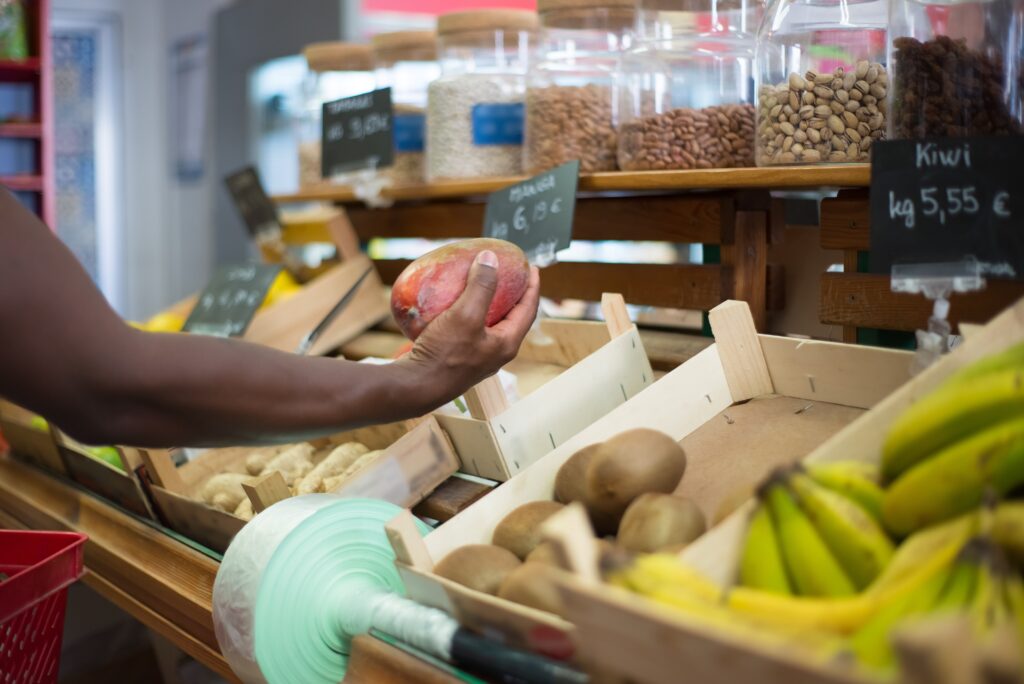Cost of Living: UK Consumers Hesitant to Spend on Sustainable Food Despite Growing Plant-Based Sales, Says New Report
3 Mins Read
A study by Swiss ag-tech startup Varda has found that the cost-of-living crisis has restricted consumer spending on sustainable food in the UK, despite a majority being considerate of their food sources. This comes after another report by the Good Food Institute showed that plant-based food sales grew by 9% between 2020 and 2022.
The survey, based on 1,000 responses from UK residents, found that 88% of Brits consider where their food comes from, but only 29% are willing to pay for more sustainably sourced options. It also revealed that 63% of respondents see themselves as sustainably aware, with 70% concerned about the future of our food supply.
The Varda poll added that 46% of consumers said they’d choose a sustainably sourced product, while almost half (48%) would consider the environmental impact of buying certain foods that have a higher carbon footprint. And this is reflected by the fact that plant-based sales in the UK grew by 9% between 2020 and 2022, according to industry think tank the Good Food Institute.
Cost of living hits hard
But in the last six months, the cost-of-living crisis has significantly impacted these consumers’ ability to spend on these products. All respondents of the Varda survey have noticed a rise in food prices, which has affected the food choices and shopping habits for 89% of them.
With squeezed budgets, people have found it hard to access sustainably sourced foods, with only 29% willing to pay more for eco-friendlier products. And if they had to buy these, 86% of consumers would only pay 25% more to do so.
Last month, a German supermarket implemented a weeklong trial where it charged shoppers the ‘true cost’ of certain food products, taking into account their impact on planetary and human health. It led to high markups of animal-based cheese (up by as much as 94%) and meat (up by as much as 88%), with fruits and vegetables seeing only a minimal spike.
Varda’s survey echoes a similar pre-pandemic poll from January 2020, which found that 54% of people across the world wanted to lead more sustainable lifestyles, but cost was the main deterrent preventing 49% of them from doing so.

Realising the impact of food on climate change
In January, a survey by UK charity The Vegan Society found that a third of British consumers prioritised eliminating or reducing animal products in their diets, with 50% upping their environmental commitments.
However, Varda’s analysis found that 55% of Brits are currently not making any adjustments to their eating habits to benefit the environment. But when it comes to the climate impact of food production, 71% said they’d alter their diet moving forward to reduce their share. This is validated by a July 2022 study published by Nature Food found that a vegan diet can reduce an individual’s carbon emissions by 75% compared to a meat-rich one.
Another UK-wide survey published earlier this year found that 49% of consumers who switched to a meat-reduced diet to cut costs found their new lifestyle more expensive. The onus seems to be on plant-based food producers – who have also been hit by inflation – to reduce their prices in a financially sustainable manner.
“Ultimately, these results highlight that sustainability is like a glass that is both half-full and half-empty,” said Varda CEO Davide Ceper. “While there has been some progress made when it comes to creating a future food supply that is less environmentally impacting, there are clearly major concerns when it comes to the accessibility of greener food choices.”
He added: “There is still a long way to go to preserve our future, that depends on a healthy and thriving natural capital. Whether this is through finding ways to calculate the externalities of foods, or implementing technology to drive sustainable farming practices, we need to push global collaboration to ensure that we consistently meet our sustainability targets and make tangible changes. Awareness has passed; we now need action.”




